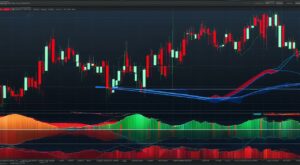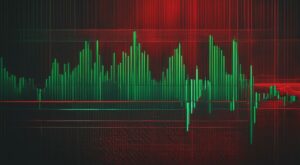Your cart is currently empty!
Is Forex Leverage Halal? The Hiden Truth

Affiliate Disclaimer: This post may contain affiliate link or links
Forex, short for foreign exchange, operates as a global market where traders buy and sell currencies. These happens 24 hours a day, 5 days a week, from Monday through Friday.
Forex leverage in Islam hinges on the use: if interest-free, it aligns with Sharia. Halal leverage amplifies potential profits without violating Islamic principles. Explore ethical financial strategies for prosperity.
Contents
One aspect of forex trading that generates a lot of inquiries from the Muslim community is the concept of leverage. Specifically, Muslims worldwide often ask, “Is Forex Leverage Halal?”
Understanding the correlation between forex, leverage, and Islamic finance principles as advised by Sharia law is critical for Muslim traders to ensure their trading activities align with their religious beliefs.
Unravel the ethical intricacies of Forex trading as we delve into the question: Is Forex Leverage Halal? Explore the intersection of finance and morality in this thought-provoking exploration.

Is Forex Leverage Halal?
In the world of forex trading, the concept of leverage is both intriguing and potentially profitable. However, for those adhering to the principles of Islamic finance, a nagging question arises – “Is Forex Leverage Halal?
Understanding and aligning with Sharia compliance is crucial for Muslim traders, steering their financial decisions.
Leverage, although significantly amplifying the prospects of profit, introduces a risk factor that might be incompatible with Islamic laws.
By navigating these waters carefully and consulting with religious scholars, one can find the balance between lucrative forex trading and devout religious practices.
| Basis for Consideration | Explanation in Islamic Finance | Conclusion |
|---|---|---|
| No Riba (Interest) | Leverage in forex trading does not necessarily involve interest as long as the trade is closed within the same trading day, i.e., there are no overnight charges. | As leverage does not inherently involve riba, it can be considered Halal. |
| Risk Sharing | In forex trading with leverage, the risk is shared between the trader and broker. This aligns with the Islamic principle of risk sharing. | The presence of risk sharing could make the use of leverage in forex trading Halal. |
| Permissibility of Contracts | Islam allows contractual agreements made with free consent and without any prohibited transactions (like Riba, Gharar, Maysir). If this condition is met, leverage can be considered permissible. | If the contract for leverage meets the conditions set by Islamic Law, it is Halal. |
| Calculation, not Gambling | If a trader utilizes leverage after a careful and evaluated market analysis, it is not considered gambling but instead a calculated financial decision. | As leverage use depends more on calculated market estimation than luck, it can be seen as Halal. |
| Ownership | The trader owns the leveraged position in forex trading, conforming to the precondition of ownership in Islamic law. | The actual ownership in forex trading aligns with Islamic principles, suggesting the permissibility of forex leverage. |

The Relationship Between Forex and Leverage
Forex trading involves buying one currency and selling another at the same time, a transaction primarily driven by speculation on changing exchange rates. Therefore, speculation becomes an inherent part of forex trading.
Leverage, on the other hand, is a facility offered by brokers which allows traders to amplify their trade’s potential profit or loss.
Essentially, leverage enables traders to control a larger amount with a smaller deposit, often referred to as margin.
Traders need to be careful with leverage, particularly if they’re borrowing beyond their means.
Excessive borrowing might land traders in debt, intersect with the realm of usury, and become questionable under Sharia compliance. Let’s delve deeper into this.
The table below shows the relationship between forex and leverage.
| Forex | Leverage | Relation |
|---|---|---|
| Trading Platform | Financial Tool | Leverage is a financial tool used within the forex trading platform. |
| Exchange of Currencies | Amplifies Trading Capacity | In forex, traders exchange currencies. Leverage enhances the trader’s capacity to trade larger amounts with a smaller deposit. |
| Speculation Based Trading | Increases Potential Profit and Risk | Forex trading is based on speculation of currency values. Leverage increases the potential for profit or loss, further intensifying speculation. |
| Variable Market | Helps Overcome Market Fluctuations | Forex markets are highly variable due to fluctuating exchange rates. Leverage aids in overcoming such market fluctuation by letting traders operate larger positions with lesser capital. |
| Requires Capital | Enhances Trading Capacity | Forex trading requires capital investment. Leverage allows the optimization of this capital by allowing trades that exceed the initial investment. |

Forex Trading: Is It Halal in Islam?
According to Islamic finance, any form of investment must abide by ethical principles and Sharia law. A critical concern for Muslim traders is whether forex trading is halal or haram.
Islamic law mandates the prohibition of riba (interest) in transactions. However, forex trading might involve the payment or receipt of interest, making traders guilty of riba, rendering the trade haram.
For instance, if a trade is held open overnight, swap interests are usually applied, which are forbidden in Islamic law.
However, several forex brokers offer Islamic accounts, sometimes referred to as swap-free accounts, to ensure Muslim traders can participate in forex trading while maintaining Sharia compliance.
Although this type of account underscores the presence of Islamic finance in forex, one must also consider the ethical principles and regulations that need to be followed.

Is Using Forex Indicator Halal?
The use of indicators in forex is a prevalent practice, providing insights beyond simple price and volume data.
These forex indicators, which might include stocks, futures, and options, aid in making educated predictions about the market trend.
While this might appear as clear-cut speculation, Islamic law allows speculation that is equivalent to taking a calculated business risk.
Moreover, it promotes the responsibility of mitigating unnecessary risks, encouraging traders to leverage indicators for smart business practice and stay away from the gambling-like mindset.
Forex Account Management: What Does Sharia Law Have to Say About It?
When it comes to managing a forex account, numerous factors require consideration, particularly from an Islamic lens.
One crucial aspect is margin trading. Trading on margin means borrowing money from a broker to trade, adding a potential element of riba.
Also, the act of borrowing to trade could drive one into debt, making usury and riba key points to ponder on.
The question that arises here is: How should a Muslim trader maintain his account in line with Sharia compliance?
It’s essential to remember that per Islamic jurisprudence, lending and borrowing are permissible, but without added interest.
This principle is reflected in Islamic banking concepts like murabaha, musharaka, and mudaraba, all of which stress profit-sharing and risk-sharing, steering clear of riba.

Is Forex Copy Trading Halal?
In forex copy trading, one trader mimics the trades of another. This approach can sometimes reflect aspects of gambling, which is haram in Islam.
Therefore, the permissibility of copy trading is often questioned. On this note, Islamic finance scholars have issued fatwas regarding the permissibility of derivative and futures contracts.
As long as these contracts do not involve riba, gharar (uncertainty), and maysir (gambling), they might be deemed halal.
In any case, traders ought to consult knowledgeable Islamic scholars to know whether their unique situation complies with Islamic laws.
The table below shows an in-depth explanation about interest gain from copy trading as haram and give reasons including conclusions.
| Relevance to Forex Copy TradingExplanation in Islamic LawConclusion | ||
|---|---|---|
| Interest (Riba) | In Islam, it is impermissible to gain profit through interest, which might apply to the profit gained from copy trading. | If the profit in copy trading derives from lending money at interest, it can be considered Haram. |
| Gambling (Maysir) | Forex Copy Trading mimics the trades of other traders, making it appear like gambling, which is prohibited in Islamic law. | If traders blindly follow the actions of others without proper analysis and understanding, mirroring gambling, it is considered Haram. |
| Uncertainty (Gharar) | The risk in Forex Copy Trading is high due to the uncertainty involved in copying another trader. This level of uncertainty could constitute Gharar in Islamic law. | High levels of uncertainty make Forex Copy Trading potentially Haram. |
| Lack of Ownership | Forex Copy Trading involves a virtual trading scheme without actual ownership of the traded goods, which contradicts the precondition of ownership in Islamic trade law. | The lack of physical ownership can make Forex Copy Trading Haram. |
| Deception (Ghish) | In a scenario where the copied trader intentionally shares losing trades, this is deemed deceptive and against Islamic principles. | If there’s deceit or misinformation in copy trading, it is considered Haram according to Islamic law. |

Conclusion
Getting involved in forex is more than just understanding currency pairs, exchange rates, pips, lot sizes, spreads, and commissions. For a Muslim trader, it’s a commitment to adhere to Islamic teachings.
That commitment leads us to conclude that forex trading can indeed be halal, as long it adheres to Islamic principles like avoiding riba, gharar, and maysir.
The Islamic concepts of murabaha (cost plus financing), musharaka (partnership), mudaraba (profit and loss sharing) and sukuk (Islamic bonds) not only define the principles of Islamic finance but also gives a way to operate under this system.
The paying of zakat (the giving of alms to support the needy) reminds traders to contribute back to society.
It’s fair to say that even when venturing into the volatile forex market, Islamic principles provide a robust ethical framework that aids in decision-making.
Free Download PZ Megaphone Indicator
Other related articles
- Trade Report Indicator: Indicator for Forex Traders
- Trend Profiteer Trading System: A Trader’s Must Have
- Quantum Trend Sniper Indicator MT4: Free Download
- German Sniper Indicator: Unveiling its Power
- Mastering MACD Intraday Trend | Indicator Free Download
- Crazy Accurate 5-Days Breakout Strategy: Unlock Success

Joseph Benson, I have been trading forex for more than 15 years now and I am still trading actively, a content writer, an Architect also SEO expert, learn how to trade easily with me.









